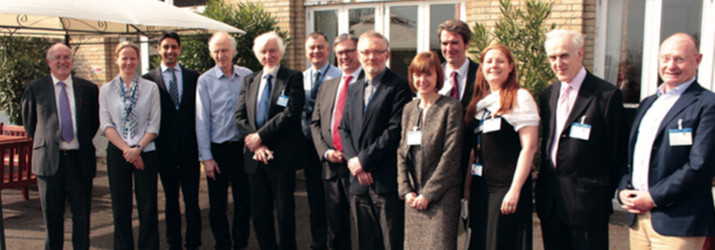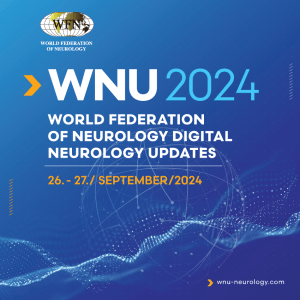
The conference on End of Life in Disorders of Consciousness (DoC) was held in London at the Royal Hospital for Neuro-disability (RHN) in Putney. RHN is a national medical charity providing both post-acute rehabilitation and continuing care for adults with complex neuro-disability. Providing services for patients in DoC, i.e. vegetative and minimally conscious states (VS and MCS), has been a specialism of the organisation for many years.
Current services for these patients include both short-term post-acute assessment and disability management, and also longer-term care for patients in DoC who need highly specialist ongoing care. This conference aimed to bring together professionals and carers from a range of specialities to discuss clinical, ethical and legal issues relating to end of life decision-making and care for people in DoC.
The first speaker was Dr Amy Kingston, Consultant in Palliative Medicine, St George’s Hospital and Trinity Hospice. Dr Kingston provided an overview of key documents and practice guidelines in managing end-of-life care and discussed the importance of integrating ‘curative’ and palliative care, since current evidence suggests that both quality and length of life are improved when there is good symptom management.
The keynote speaker for the day was Professor Derick Wade, Professor of Neurological Disability. Professor Wade gave an overview of the legal cases that have shaped the current UK situation with regard to end of life in DoC, particularly withdrawal of clinically assisted nutrition and hydration (CANH), and the current necessity to take all such decisions to the courts. He argued that the process of this evolution has led to an over-reliance on specific diagnostic labels (i.e. VS versus MCS) and a risk-averse culture in which clinicians can feel obliged to do everything possible to prolong life. He outlined key clinical, legal and economic evidence in this field and made a thought-provoking case for framing DoC as a continuum rather than two dichotomous diagnostic labels, and for decision-making to be done following the best-interest principles of the Mental Capacity Act (2005), with a suggested move away from routine court involvement.
Legal principles in this area were then discussed in further depth by Mr Yogi Amin, National Head of Public Law, Irwin Mitchell LLP, who provided useful insights into relevant case law developments in an area that continues to evolve.
Professor John Saunders then discussed the issues from an ethical perspective, considering the meanings of concepts such as consciousness, futility, rights and dignity in relation to this area.
The afternoon session opened with some personal reflections from Reverend Geoff Coyne, RHN Chaplain. Rev. Coyne talked about his perspective as a Christian Minister that all people who are living and breathing, regardless of their level of consciousness, have a spirit and therefore equal spiritual value. He shared his experiences of the wide variety of interpretations of life and death that he sees in the relatives of people in DoC in his pastoral care role at RHN.
This was followed by a talk from Mr Jim Beck, Healthcare & Welfare Lawyer at the Office of the Official Solicitor who talked about the role of his office in serious medical cases in the Court of Protection. Mr Beck explained that the diagnostic distinction between VS and MCS remains significant as, currently, treatment for people in permanent VS is deemed futile by virtue of diagnosis, whereas cases in MCS require a balance-sheet exercise. He also provided useful insights into some of the practical issues that can cause court decisions to be delayed, such as failures to conduct the right tests or to rule out other causes.
Further consideration of the ethical issues in this field was provided by Professor Raanan Gillon, Emeritus Professor of Medical Ethics, Imperial College London. He suggested that DoC is currently treated differently from other life and death contexts, such as decision-making in intensive care units, and gave the opinion that when best interests are agreed by all parties the case should not have to be heard by the Court of Protection.
This was followed by a talk from Ms Veronica English, Head of Medical Ethics, British Medical Association (BMA), who gave an overview of the role of the BMA in advising medical professionals, and the evolution of this guidance over time. She argued that clarity around the diagnostic and legal issues is essential for the BMA to be able to advise its members, and agreed with the view expressed by some of the other speakers that refining protocols is likely to remove the need for routine court approval of end of life decisions in DoC in the future.
The final speaker was Dr Andrew Hanrahan, Consultant in Rehabilitation Medicine and Neurological Disability, RHN, who provided a summary and final comment on the day. He described how the Royal Hospital for Neuro-disability had provided a platform where different and differing views had been expressed, listened to and challenged. He concluded that society and the professions needed to develop a new relationship with death and dying, seeing it as a social event rather than an arbitrary medical milestone on a temporally determined process.
Throughout the day there were opportunities for questions and discussions from the attendees, which enabled further insights and debates to be aired. Interesting discussions included questions about healthcare economics and the role of public finances in supporting people with DoC at the possible expense of financing care for those in other conditions, a suggested shift towards routinely asking whether it is right to continue with treatment rather than withdraw treatment for all patients in long-term DoC, and discussion around whether CANH is a ‘right’ or a ‘treatment’.
This fascinating day highlighted the complex and often emotional issues in this area, and the endeavours of professionals from a range of clinical, legal and related backgrounds to have clarity, professionalism, and compassion in working with these patients and their families.

